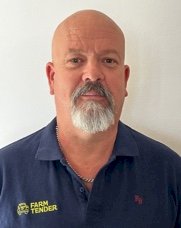5 Minutes with 2016 Growth Awards Regional Winner - Andrew McMahen
- By: "Farm Tender" News
- US & World News
- Oct 25, 2017
- 534 views
- Share

Andrew McMahen has a thirst for knowledge. He aims not only to be a good agronomist, but to be an educator. Andrew’s goal is to teach his clients everything he knows and hopes to bring their knowledge up to par with his. While some agronomists would feel threatened that this would make them irrelevant, this is what drives Andrew to continue learning, researching and networking. As such, Andrew is continually seeking out learning opportunities, reviewing data, and talking with peers.
His drive for knowledge is reflected in Andrew’s management style. He believes productivity comes from a deep understanding of individual farming systems, and therefore uses every means available to learn about his clients’ individual farming operations. He gets to know their environment, their farm capacity and capability and their personal goals, and tailors a management strategy to accommodate.
Andrew’s aim for each of his clients is to identify where productivity improvements can come from and develop an integrated system to achieve these improvements.
Because his management strategies are so customised, Andrew is constantly evaluating the progress of his client’s crops and making suggestions and adjustments as necessary. He aims to match marginal inputs to yield potential not so much to push the crops to the limit, but more to achieve the best return possible in every situation.
Andrew, how do you think your work helps to overcome the challenges of modern farming?
With the amount of technology, data and research at farmers’ finger tips, it can be challenging to find accurate or appropriate information. As an agronomist, I help my clients by becoming their main source of information. I try to deliver the best and most reliable information for their individual needs and believe this helps my clients overcome the challenges of modern farming.
What is your advice for growers on managing production risk and variability?
I am a big believer in monitoring and assessing input rates. I try not to go over the top initially as you can reassess what’s needed throughout the year. I usually recommend adding less nitrogen up front so farmers can leave contingency in the budget if it’s needed to meet yield potential.
A lot of my clients have variable soil types so the advice needs to be individually tailored to their specific conditions. I implement a number of monitoring and measuring technology such as variable rate application and yield monitoring to ensure the best management strategy is recommended for each crop. I use programs to develop yield maps where I can assess multiple years of data and view the overlay to identify trends. I can also create yield stability maps to help zone paddocks appropriately. This data all contributes towards identifying and preparing for potential risk.












Share Ag News Via